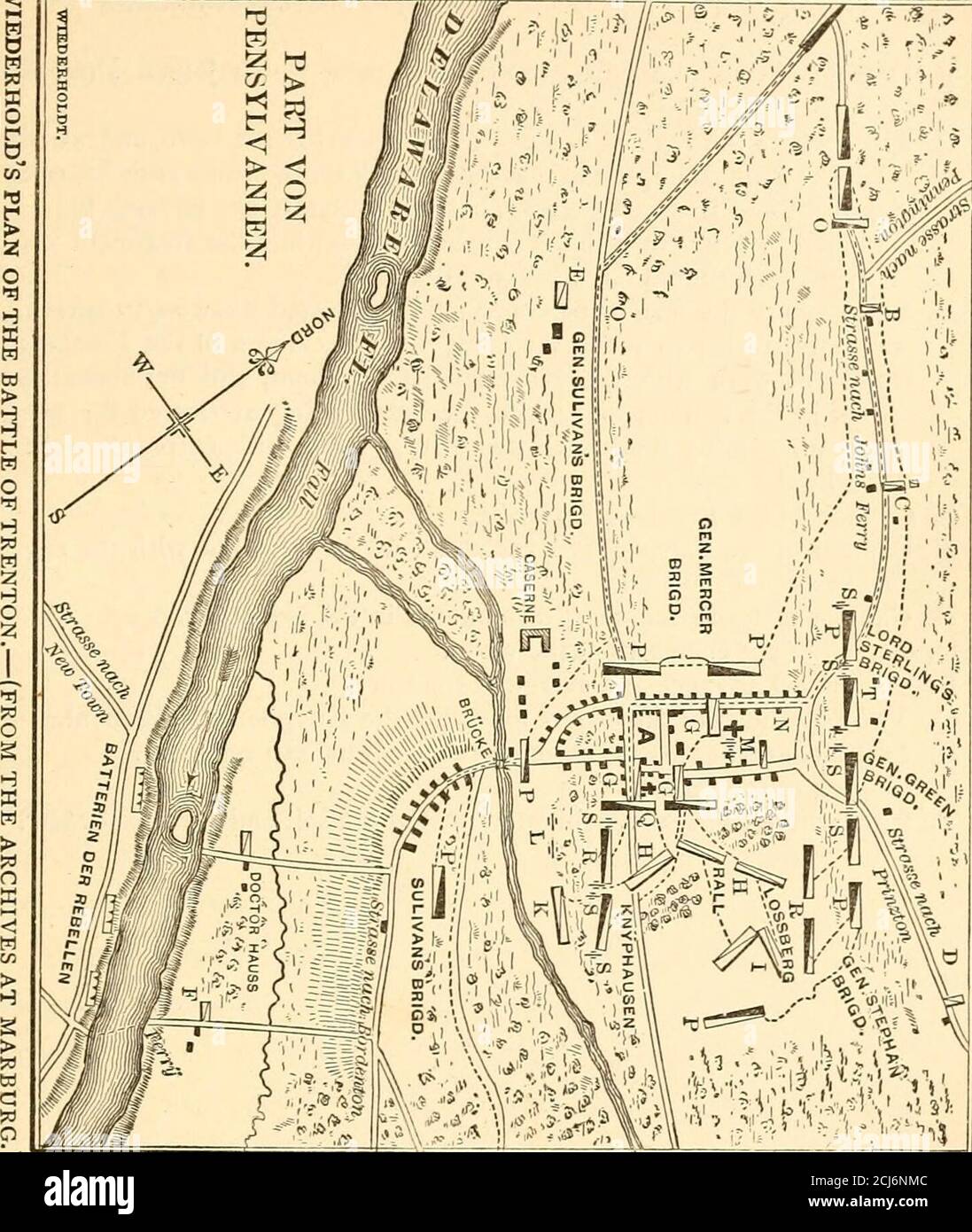. The Hessians and the other German auxiliaries of Great Britain in the revolutionary war . o pitiful was their conditionthat a messenger who had followed them had easilytraced their route by the blood on the snow, from thefeet of the men who wore broken shoes. Meanwhile, Cadwalader was to have crossed the riverat Dunks Ferry, below Trenton, but the ice was packedagainst the Jersey shore, and, though men on footcould get over, there was no hope for artillery. Theeighteen hundred men destined for this part of the ex-pedition waited in vain through the December night.At four in the morning, Cadw

Image details
Contributor:
Reading Room 2020 / Alamy Stock PhotoImage ID:
2CJ6NMCFile size:
7.1 MB (465.2 KB Compressed download)Releases:
Model - no | Property - noDo I need a release?Dimensions:
1452 x 1720 px | 24.6 x 29.1 cm | 9.7 x 11.5 inches | 150dpiMore information:
This image is a public domain image, which means either that copyright has expired in the image or the copyright holder has waived their copyright. Alamy charges you a fee for access to the high resolution copy of the image.
This image could have imperfections as it’s either historical or reportage.
. The Hessians and the other German auxiliaries of Great Britain in the revolutionary war . o pitiful was their conditionthat a messenger who had followed them had easilytraced their route by the blood on the snow, from thefeet of the men who wore broken shoes. Meanwhile, Cadwalader was to have crossed the riverat Dunks Ferry, below Trenton, but the ice was packedagainst the Jersey shore, and, though men on footcould get over, there was no hope for artillery. Theeighteen hundred men destined for this part of the ex-pedition waited in vain through the December night.At four in the morning, Cadwalader, sure that Wash-ington, like himself, had been turned back by the dif-ficulties of the expedition, ordered his half-frozen menback to their freezing camp.f The night, writes eight oclock on the morning of the 26th. Rail, himself, is said to havebeen a drinker. * Bancroft, vol. ix. p. 230. About twenty-five hundred men.—Diaryof Captain Moses Brown of Glovers regiment, kindly communicated byEdward I. Browne, Esq. t Cadwalader to Washington, Sparkss Correspondence, vol. i. p. 309.. ii?iV I; J, -f. A}, , ! PLANof the affair which took place on the 26th of December, 1776, at Tren-ton, between a corps of six thousand rebels, commanded by GeneralWashington, and a brigade of Hessians, commanded by Colonel Rail. A. Trenton. B. Picket of an officer and twenty-four men. (Wiederhold.) C. Captain Altenbocums company of the Lossberg regiment, which was quartered in the neighborhood, and which formed in front ofthe captains quarters, while the picket occupied the enemy. D. Picket of one captain, one officer, and seventy-five men. E. One officer and fifty Jagers, who immediately withdrew over the bridge. (Grothausen.) (Wiederhold^s Plan of the Battle of Trenton—Continued.) F. Detachment of one officer and thirty men, which joined Donops corps. G. Place where the regiments stopped after leaving the town, and where Colonel Rail attempted to make an attack on the town with his ownregime